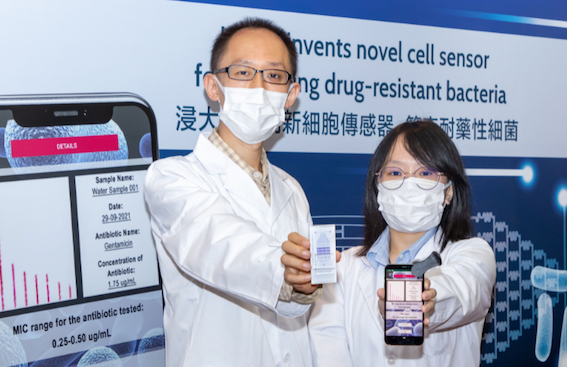
image credit- HKBU
A research team led by scientists at Hong Kong Baptist University (HKBU) has developed a novel cell sensor with a barcode-like micro-channel structure that enables rapid and low-cost screening of drug-resistant bacteria.
The invention could potentially be used on a large-scale in resource-limited situations such as frequent safety screenings of water, food and public facilities, as well as urgent surveys of massive samples during an infectious disease outbreak, particularly in developing countries.
Antimicrobial susceptibility testing (AST) is used to determine which antibiotics can effectively inhibit the growth of a certain type of bacteria effectively. However, conventional AST methods are too slow.
A rapid and cost-effective strategy is therefore needed to screen bacterial samples onsite, with advanced laboratory testing arranged only for those suspected of containing drug-resistant bacteria.
The new sensor is designed as a fully automatic, microscope-free AST system. It comprises two main parts: a cell culture zone and a "barcode" cell sensor.
The "barcode" cell sensor has a low production cost, and it is estimated to be below one US dollar per piece. The research team has filed a patent application for the "barcode" cell sensor. "We plan to develop our invention into a portable AST instrument, and ultimately, we hope it can be used in resource-limited regions," researchers said.




